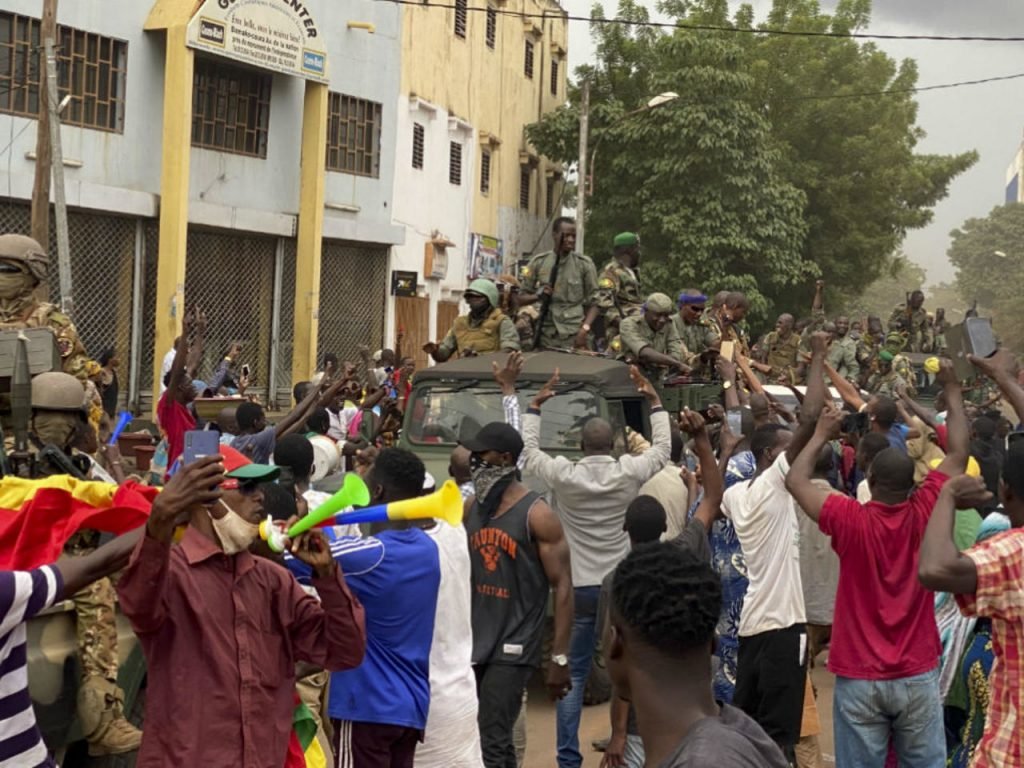Soldiers of the Mali armed forces responsible for the coup that led to the resignation of President Ibrahim Boubacar Keita have revealed the motive behind their actions.
Recall that former President Keita resigned and dissolved parliament as soldiers detained him at gunpoint.
On Wednesday, they explained that Keita’s removal was to salvage Mali from falling deeper into turmoil.
They announced the plan to form a civilian transitional government that will organize fresh elections.
In a broadcast, Col. Ismael Wague, spokesman for the mutineers, called them the “National Committee for the Salvation of the People”.
Wague invited Mali’s civil society and political movements to join them to create conditions for a political transition that would lead to elections.
“Our country is sinking into chaos, anarchy and insecurity mostly due to the fault of the people, who are in charge of its destiny,’’ Rueters quoted him as saying.
Meanwhile, Herald Nigeria earlier reported that Ibrahim Boubacar Keïta, President of Mali has resigned, after being apprehended by soldiers on Tuesday, state TV reports.
In an address broadcast on television, Mr Keïta announced he was also dissolving the government and parliament.
“I want no blood to be spilled to keep me in power,” he added.
It comes hours after he and Prime Minister Boubou Cissé were taken into custody at a military camp near the capital Bamako, drawing condemnation from regional powers and France.
“If today, certain elements of our armed forces want this to end through their intervention, do I really have a choice?” Mr Keïta added.
“I hold no hatred towards anyone, my love of my country does not allow me to,” he added. “May God save us.”
READ ALSO: Japanese Emperor, Family Cancels Summer Retreat Due To Pandemic
Earlier, the renegading soldiers gained control of the Kati camp.
There has been continuous unrest among soldiers about pay and over a recurring conflict with jihadists – as well as widespread discontent with the former president.
Mr Keïta won a second term in elections in 2018, but there has been anger over corruption, the mismanagement of the economy and the rise of communal violence in areas of the country.
It has prompted several large protests in recent months. A new opposition coalition led by the conservative Imam, Mahmoud Dicko, has called for reforms after rejecting concessions from Mr Keïta, including the formation of a unity government.
The coup on Mali’s government was spearheaded by Col Malick Diaw – deputy head of the Kati camp – and another commander, Gen Sadio Camara, BBC reports.
After taking control of the camp, about 15km (nine miles) from Bamako, the mutineers marched on the capital, where they were cheered by crowds who had gathered to demand Mr Keïta’s resignation.
On Tuesday afternoon they stormed his residence and arrested the president and his prime minister – who were both there.
The president’s son, the speaker of the National Assembly, the foreign and finance ministers were reported to be among the other officials detained.
The number soldiers taking part in the mutiny is unclear.
Kati camp was also the focus of a mutiny in 2012 by soldiers angry at the inability of the senior commanders to stop jihadists and Tuareg rebels taking control of northern Mali.
When news first broke of the mutiny, the United Nations and African Union both called for the release of those held by the soldiers.
The Economic Community of West African States (Ecowas), a regional body, also said its 15 member states had agreed to close their borders with Mali, suspend all financial flows to the country, and eject Mali from all of Ecowas’ decision-making bodies.
READ ALSO: Cassie Recounts Her Depressing Postpartum Weight Loss Journey



Leave a Reply